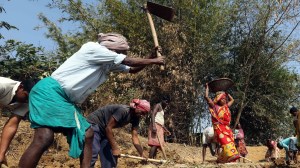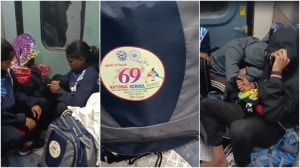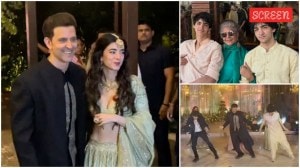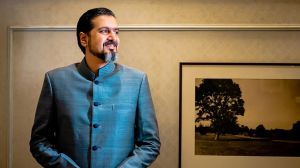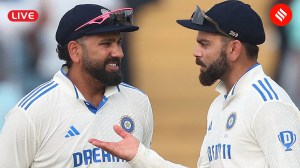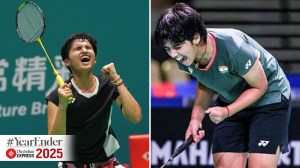‘Award wapsi’: Khushwant Singh to Bajrang Punia, the history of returning govt honours in protest
Returning or declining awards has often been a way of scoring a political point against the government. But, some have also refused citing personal reasons or as a matter of principle.
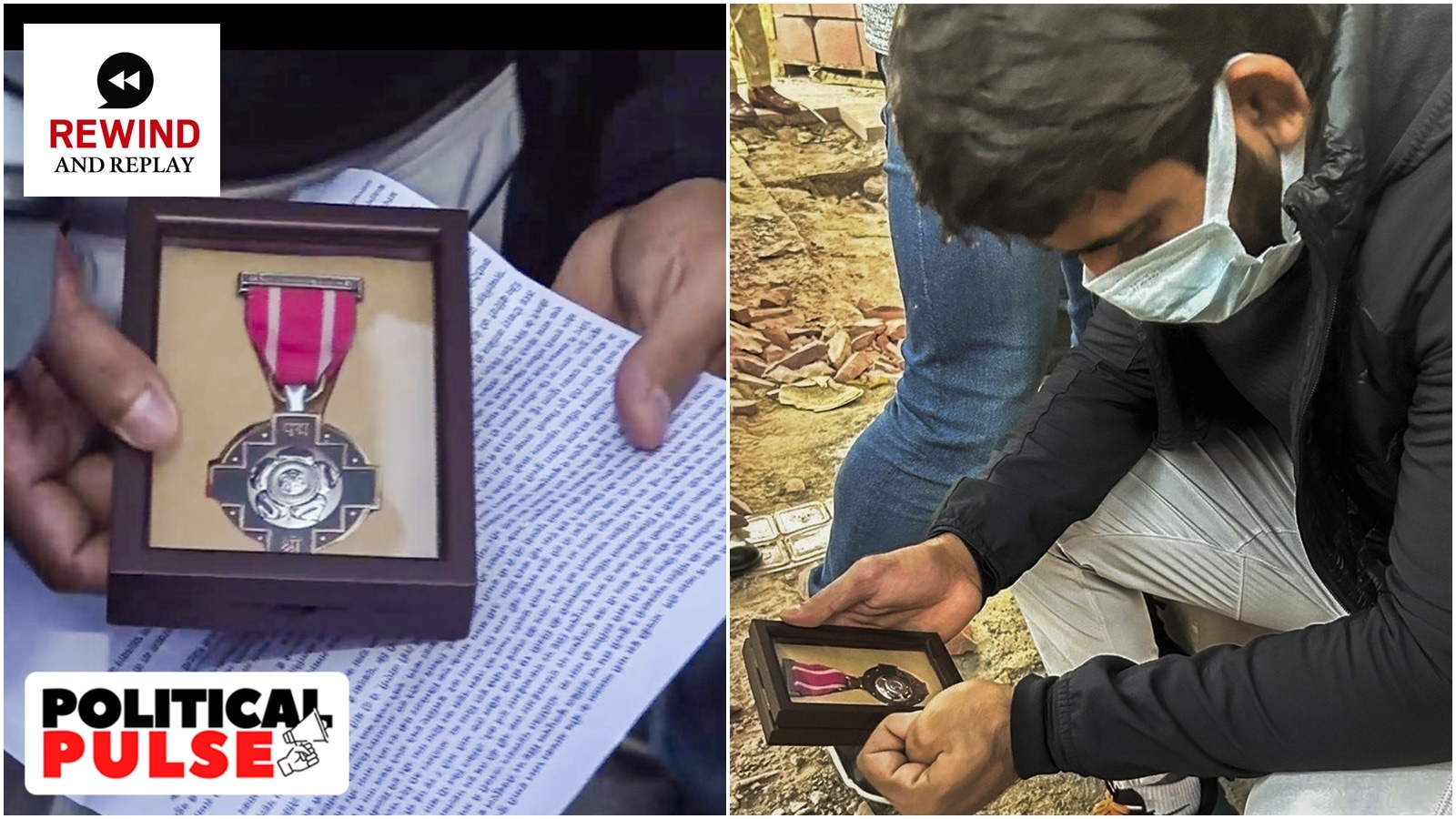 Wrestler Bajrang Punia holds his Padma Shri award near the Kartavya Path, in New Delhi on Friday. The Olympic medallist has decided to return the award in protest over the election of Sanjay Singh as the president of Wrestling Federation of India. (PTI Photo)
Wrestler Bajrang Punia holds his Padma Shri award near the Kartavya Path, in New Delhi on Friday. The Olympic medallist has decided to return the award in protest over the election of Sanjay Singh as the president of Wrestling Federation of India. (PTI Photo)“Asammanit pehelwan (Dishonoured wrestler)”. That is how Olympics bronze medallist Bajrang Punia signed off his letter to Prime Minister Narendra Modi, published on social media on Friday, announcing he was returning his Padma Shri award. Minutes later, Punia placed the award on a footpath on Kartavya Path as he was stopped from walking towards PM’s residence and walked away.
The wrestler was protesting after a close associate of BJP MP Brij Bhushan Sharan Singh, who faces sexual harassment allegations from six women wrestlers, was appointed the president of the Wrestling Federation of India (WFI).
But, this is not the first time that top awards have either been declined or returned. One of the earliest post-Independence examples was from 1954. A reply to a Rajya Sabha question posed by former MP O P Tyagi in 1974 notes that freedom fighter Ashadevi Aryanayakam and social worker Amalprova Das had “refused to accept the award (Padma Shri) on personal grounds”.
Journalist and writer Khushwant Singh was awarded the Padma Bhushan in 1974 but he returned it in 1984 in protest against Operation Blue Star at the Golden Temple in Amritsar. He was nominated to the Rajya Sabha by the government of Prime Minister Indira Gandhi and was an MP from 1980 to 1986. He was subsequently awarded the Padma Vibhushan in 2007.
In his autobiography Truth, Love and a Little Malice, Singh writes, “I regarded (Khalistani leader Jarnail Singh Bhindranwale) as an evil man who deserved his fate. But ‘Operation Blue Star’ went well beyond the slaying of Bhindranwale: it was a well-calculated and deliberate slap in the face of an entire community. I felt strongly that I must register my protest … (Then President) Giani Zail Singh was in a state of acute depression. ‘I know how you feel,’ he said to me, ‘but don’t be hasty. Think over the matter for a few days and then decide what you should do.’ I held my ground. ‘No Gianiji. I don’t want to give myself time to change my mind. I had sworn that if the army entered the temple I would renounce the honours bestowed on me by this government.”
Swami Ranganathananda of the Ramakrishna Mission declined the award in 2000 as it was conferred to him as an individual and not to the Mission. For historian Romila Thapar, not accepting government honours was a matter of principle and not protest. She refused to accept the Padma Bhushan twice: in 1992 and later again in 2005, stating that she would accept awards only “from academic institutions or those associated with my professional work”.
Just one year into the first Narendra Modi government, between September and November 2015 there were 33 cases of writers and intellectuals returning their Sahitya Akademi award. It started on September 9 when Hindi writer Uday Prakash returned the Sahitya Akademi award he won in 2010, for the novella Mohandas, to protest against the Akademi’s “indifference” over the murder of scholar M M Kalburgi.
Nearly a month later, authors Nayantara Sahgal and Ashok Vajpeyi returned their awards and were followed by writers Krishna Sobti and Shashi Deshpande. Sahgal said that “India’s culture of diversity” and the “right to dissent” were under “vicious assault”. Several others followed suit, with new authors joining the rebellion almost every day returning their awards. Punjabi writer Dalip Kaur Tiwana also returned her Padma Shri.
Directors such as Saeed Mirza, Kundan Shah, and Dibakar Banerjee and documentary filmmaker Anand Patwardhan followed suit and gave up their National Awards — both in solidarity with the literary figures and in support of Film and Television Institute of India (FTII) students who were at the time protesting against the appointment of Gajendra Chauhan as institution’s chairman.
The government came down on these artists, calling the situation a manufactured “paper rebellion against the government in the wake of a manufactured crisis”.
Politicians on the list
Among the more recent examples is from January 2022, when former West Bengal Chief Minister and veteran CPI(M) leader Buddhadeb Bhattacharjee turned down the Padma Bhushan hours after the announcement. The Indian Express reported at the time that the CPI(M) top leadership in New Delhi had worked the phones and conveyed to Bhattacharya’s family that the party’s tradition was not to accept such honours.
With this, Bhattacharya joined the company of Kerala’s first CM and Communist icon E M S Namboodiripad who turned down the Padma Vibhushan awarded by the P V Narasimha Rao government, saying it went against his nature to accept state honour.
Former Punjab CM Parkash Singh Badal returned his Padma Vibhushan in 2020 in the wake of the farmers’ protests in the state against three central agricultural laws that the Modi government had pushed through Parliament. The laws were subsequently repealed.
- 01
- 02
- 03
- 04
- 05








